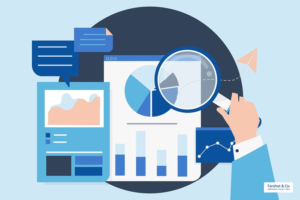Data Analytics, Continuous Auditing and Audit Automation Course
Course Fee:
OBJECTIVES
• Develop a continuous auditing programme and process
• Secure management buy-and integrate continuous auditing into your organization’s culture
• Understand the impact of group internal audit functions
• Examine existing examples of continuous auditing strategy and best practice
CONTENT
Applying a technology-enabled approach to auditing
• Data analytics overview
• Business case for data analytics and automation
• Pros and cons of common data analysis technologies
• Common data analysis techniques and methods
• Integrating data analytics across the audit process
Data analysis process and analytic development lifecycle
• Define problem, scope and DA objectives
• Locating, understanding and obtaining data
• Validating, transforming and preparing data
• Running modelling procedures, routines and visualizations
• Interpreting and validating results
• Reporting findings and conclusions
• Refining / sustaining analytics for future problems
Implementing sustainable practices
• Making analytics repetitive
• Developing appropriate standards
• Data analytics libraries and audit marts
• Leveraging external data sources
• Risk scoring entities and transactional data
• Dashboards, scorecards and visual analytics
• Spatial relationships and mapping
• Predictive analytics
Evolving to Continuous Auditing (CA)
• Assurance and the multiple lines of defence
• Fundamentals of Continuous Auditing
• Traditional auditing vs continuous auditing
• Business case for Continuous Audit
• Skill and technology requirements
• Changes to data extraction, data analytic logic and technical documentation
• Effect on audit process
• Considerations for reporting and audit documentation
• Best practices and case studies
Developing a sustainable strategy for technology-enabled auditing
• Common implementation hurdles
• Change management: addressing people and process issues
• Technology planning
• Components of an effective data analytics program
• Developing the data analytics strategy
• Implementation planning and program management
FOR WHOM
Chief Audit Executives, Internal Audit Heads, Managers, Supervisors and Lead Auditors from the private, public and not-for-profit sectors or anyone performing data analysis techniques.
METHODOLOGY
The training methodology integrates lectures, interactive discussions, collaborative group exercises, and illustrative examples. Participants will acquire a blend of theoretical insights and hands-on practical experience, emphasizing the application of learned techniques. This approach ensures that attendees return to their professional environments equipped with both the competence and self-assurance to effectively implement the acquired skills in their responsibilities.
DATE:
1ST BATCH: 27th – 30th May, 2025
2ND BATCH: 9th – 12th Dec, 2025
Course Category
- Human Resource and Admin
- Finance and Accounting
- Internal Audit and Fraud Control
- Stores, Procurement and Supply Chain
- Information Technology
- Aviation and Maritime
- Banking, Investment and Insurance
- Business Communication
- Construction Management & Civil Engineering
- Engineering, Instrumentation and Maintenance
- Entrepreneurship and Business
- Hotel & Hospitality Management
- Law and Contract Management
- Management and Leadership
- Project Management
- Public Relations
- Public Sector
- Sales, Marketing & Customer Service
- Secretaries & Personal Assistants
- Transport & Logistics
- Security and Safety
More Courses
VENUE
25, Queen street, Alagomeji Bus Stop, Yaba, Lagos










